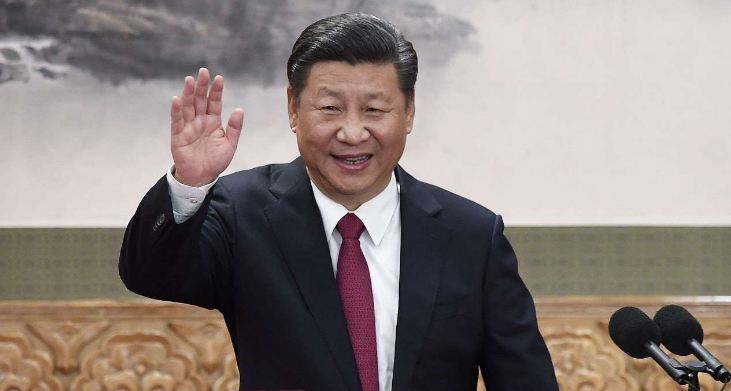As the Chinese Communist Party (CCP) is celebrating 100 years of existence, the Chinese city of Shenzhen is all set to overhaul its rules on worker pay for the first time in 17 years, looking to curb surging labour costs and arrest the exodus of companies to cheaper markets in Southeast Asia and elsewhere.
For the last 100 years, Chinese people have been oppressed, subjugated and deprived of freedoms by the CCP. As part of the totalitarian regime’s centennial celebration, the CCP is now planning to rob Chinese workers of all their rights, effectively subjecting them to the whims and fancies of their overzealous employers – who will most certainly make life miserable for all their employees. Ironically, an anti-worker system is being put in place by the Communists – who otherwise have a history of fighting, even to an unreasonable extent some may argue, for overarching worker and labour rights.
However, the China of 2021 is hardly in a position to let its workers have any rights. China’s financial systems and over-inflated economy are on the edge; its industrial output is taking a hit due to unavailability of adequate energy; Covid-19 is severely reducing the country’s ability to operate its trading centres while Chinese citizens grow increasingly frustrated with the CCP regime oppressing them.
Companies are fleeing China, due to steadily increasing labour costs and a general oppressive system in the country which refuses to let corporate houses and companies operate freely.
According to Nikkei Asia, Shenzhen hopes cutting wages could encourage hiring. The city plan would allow the deadline for companies to pay their workers to be extended to the 30th of the following month from the current 22nd. The new rules broadly have three parameters: reducing overtime pay for irregular workers, tightening bonus rules and extending deadlines for paying employees.
Under revisions to the local ordinance on wages, workers who show up on statutory holidays will be paid the same as regular weekdays. Currently, such workers are paid over three times more than the pay on normal days.
What’s worse, Shenzhen – which is China’s bustling technology hub will allow companies to set their own guidelines on bonus payments, and potentially not pay workers who were only there for a short-term. Presently, employers are required to issue bonuses in proportion to how long employees worked with them each year, even if they quit halfway through.
The Nikkei report added how Shenzhen was designated a special economic zone in 1980 as the poster child for China’s economic reform. New industrial and economic policy is often tested in the city before being adopted nationwide, which is why the new worker rules being brought in by Shenzhen could eventually lead to an overhaul of China’s national labour laws.
China’s technology sector is no place for humans. It is a sector. which does not have companies or decent workspaces. What it has are sweatshops, where workers are exploited, underpaid, harassed and stripped off all freedoms. The mental health of those working in China’s tech sector is under severe stress, and the new labour rules which are coming in promise to add to the workforce’s woes.
To make matters worse, Chinese companies are keeping employees under surveillance and blatantly invading their privacy. Companies in China are making use of softwares like DiSanZhiYan, or “Third Eye”. According to Andy Wang, an IT engineer at a Shanghai-based gaming company quoted by Nikkei Asia, the system was installed on the laptop of every colleague at his company to track their screens in real time, record their chats, their browsing activity and every document edit they made.
The software would also automatically flag “suspicious behavior” such as visiting job-search sites or video streaming platforms. “Efficiency” reports would be generated weekly, summarising their time spent by website and application. A Nikkei Asia report has revealed that Sangfor Technologies, China’s largest provider for online monitoring platforms, counts e-commerce giant Alibaba, TikTok’s owner ByteDance, Weibo’s parent Sina Corp., smartphone maker Xiaomi and telecommunication equipment maker ZTE among its more than 50,000 corporate clients. This speaks volumes about the draconian work atmosphere in China.
Companies are leaving China en masse due to the incredibly low employee retention they experience in the mainland. Needless to say, no employee can work peacefully if they are monitored throughout their time at the office, especially when the work hours range from 9 am to 9 pm, six days a week. The environment of intense pressure has created a lethal atmosphere for office workers, who are passing out, collapsing and even taking their own lives due to the incredible stress they face.
Read more: For the first time in the history of CCP, it is no longer the vanguard of the working class
China is punishing its people for the mess created by the CCP. The Communists have pushed China into a dark pit, from where they see no escape. Despite claiming victory over the Covid-19 pandemic, China’s southern provinces are reeling under intense pressure due to new outbreaks which refuse to die down. In fact, China is facing a crisis much bigger than faced by the world when the Suez Canal got blocked recently. A major coronavirus outbreak in southern China has led to local lockdowns since late May. Congestion at container shipping ports is tremendously hurting Chinese trade.
Leading ports in Guangdong like Yantian, Shekou, Chiwan and Nansha issued notices last month and suspended vessels from entering ports without advance reservations. The backlog at Yantian alone has surged to 357,000 six-metre container loads since late May when the latest wave of coronavirus cases led to restrictions in southern China. The backlog at Yantian alone exceeds the total volume of trade impacted by the six-day closure of the Suez Canal in March.
China is in a crisis and is taking its frustration out on an already overworked labour force spanning across various sectors. 100 years after its foundation, the CCP has only made lives miserable for Chinese people.








